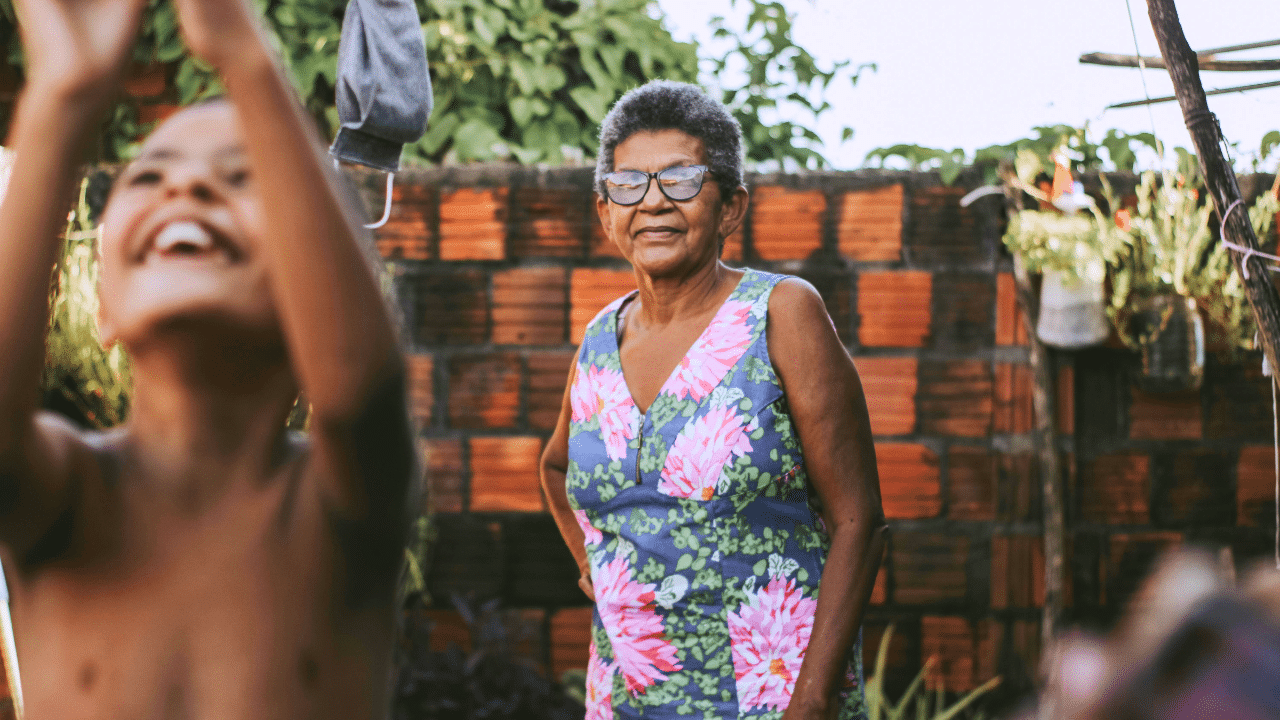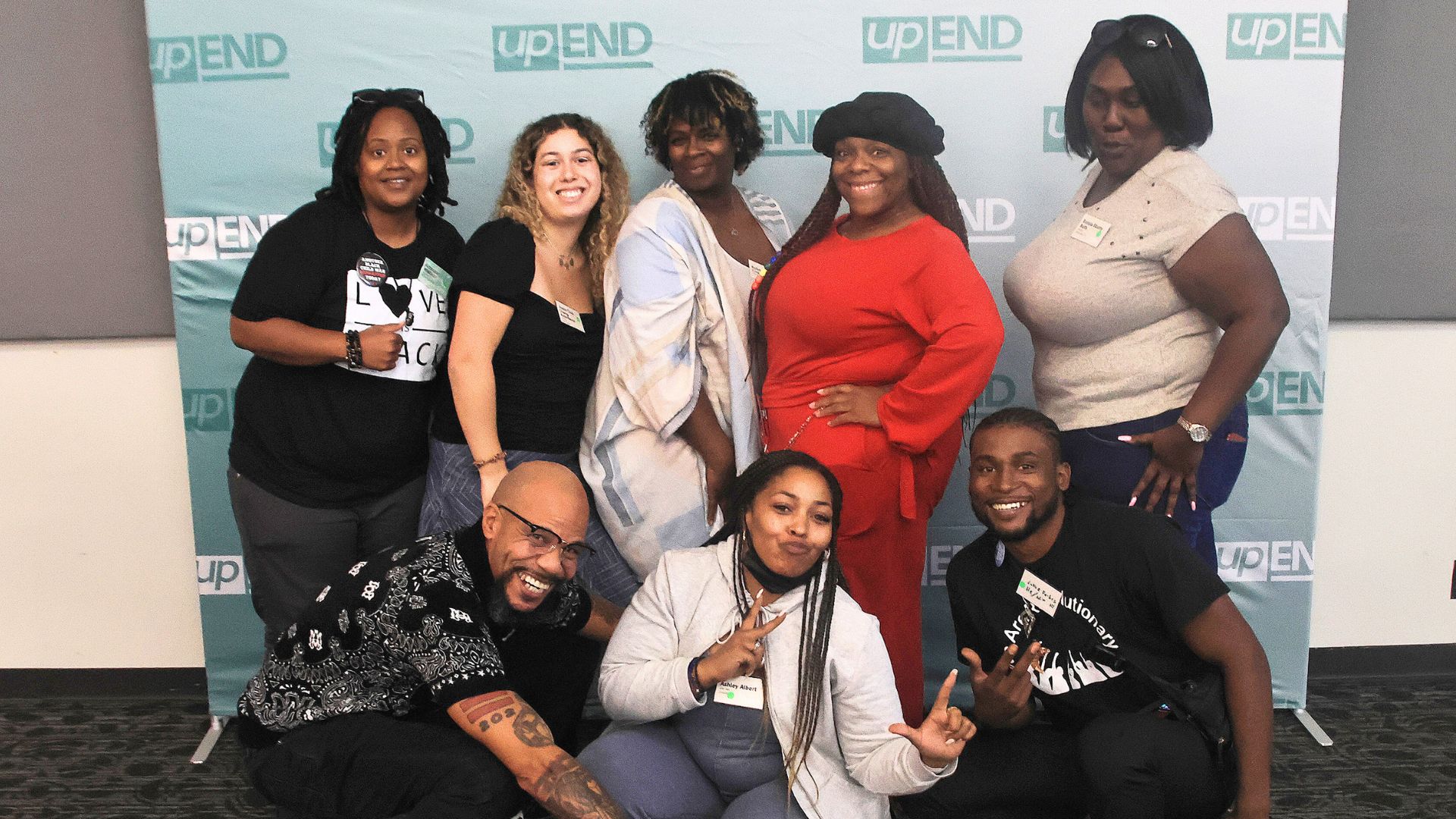Family Policing Doesn’t Prevent Child Abuse, Abolition Can
April 18, 2024
April 18, 2024

by Maya Pendleton and Alan Dettlaff
Given that April is National Child Abuse Prevention Month, it is important to think about how the child welfare system, or more accurately the family policing system, fails to actually prevent child abuse despite millions of dollars in funding to do just that. On the other hand, considering abolitionist alternatives to the family policing system allows us to address the root causes of harm and move towards strategies and solutions that prevent child abuse while ending the policing and punishment of families and communities.
Federally, child abuse and neglect is defined by the Child Abuse Prevention and Treatment Act (CAPTA) as “any recent act or failure to act on the part of a parent or caretaker which results in death, serious physical or emotional harm, sexual abuse or exploitation” or “an act or failure to act which presents an imminent risk of serious harm.”
While individual states also may have legislation defining and governing child abuse and neglect, CAPTA is the primary legislation that targets child abuse. The law primarily employs mandatory reporting–a requirement of some professionals or all people depending on the state to report suspected child abuse and neglect–as a mechanism to prevent child abuse and neglect. Yet CAPTA, like much of child welfare policy, has come under fire for both its failure to prevent child abuse and neglect and for the ways the legislation encourages states to allocate funds to surveillance, investigations, and the punishment of families and communities, especially Black and Indigenous families. CAPTA incentivizes the state to punish families experiencing hardship instead of preventing harm from occurring, both interpersonally and structurally.
Despite its primary focus on family separation, the family policing system also purports to prevent child abuse. However, the lack of commitment to prevention compared to the reactive measure of family separation is made clear through its budget priorities.
In fiscal year 2020, nearly two-thirds (64%) of the $31 billion spent on child welfare services were allocated to support the placement of children in out-of-home care and services supporting adoptions. In contrast, only 14% of this annual budget was allocated to “prevention services.” However, when examining this more closely, nearly three-quarters (71%) of the funds allocated for prevention were used to support “skill-based” programs and caseworker visits to families. Less than one-tenth of the already small portion of funds dedicated to prevention were used to support the direct, material needs of families, despite the reality that the vast majority of families reported to the family policing system are reported due to concerns related to poverty.
This allocation of funds demonstrates not only the family policing system’s dedication to family separation but also the carceral logic that informs the system’s views of “prevention.” In effect, the carceral logic of the family policing system establishes that families who are experiencing poverty are individually responsible for this poverty and need to be “treated” through punitive interventions employed by the state. This individualization of blame distracts from the broader societal problems that allow poverty to exist and from the racism that allows poverty to exist disproportionately among Black and Indigenous families. This logic was firmly established through CAPTA which classified “child neglect” along with “child abuse” under the broader category of “child maltreatment,” cementing the idea that parents who are unable to meet their children’s needs due to poverty are responsible for maltreatment and subject to state intervention.
The effect of carceral logic is that it rationalizes the use of punitive interventions as a means of “treating the problem.” This is demonstrated by states’ budget decisions that prioritize skill-based programs as a means of prevention. Rather than addressing the material needs that bring families to the attention of the system, parents are expected to comply with a complex series of skill-based “services” that reinforce the ideology that they are responsible for their circumstances.
For example, if a family lacks housing, the family policing system does not provide housing or address the societal conditions that contribute to a lack of affordable housing; yet the system can mandate that parents attend a money management class and then document their attendance in this class as a measure of “progress,” while maintaining the expectation that parents find appropriate housing on their own. Similarly, if parents are unable to maintain consistent employment, the system will send parents to job skills training classes and document their participation in these classes, while doing nothing to address the conditions that create a lack of employment opportunities.
Most recently, the carceral logic of the family policing system was further entrenched through the passage of the Family First Prevention Services Act (FFPSA) of 2018, which allows states to shift certain funds dedicated to supporting out-of-home placements to prevention services as a purported means of strengthening and maintaining families in lieu of family separation. However, the strict restrictions on how these funds can be used for prevention made clear the carceral logic that undergirded this alleged reform. FFPSA allows funds to be used for prevention services for children who are deemed at “imminent risk of entering foster care” only if the state continually monitors them under an approved “prevention plan.” Further, the services provided through this plan are limited to mental health services, substance abuse services, and in-home parent skill-based programs. In other words, FFPSA reinforces the logic of parental pathology by limiting the use of prevention funding to only support parents’ perceived mental health concerns, substance use, or parenting deficits, rather than any of the financial or material needs that parents may be experiencing.
Ultimately, the family policing system’s approach to prevention has always and continues to be undergirded by a logic that emphasizes surveillance, compliance, and performance as the sole measures by which families are deemed worthy of keeping their children. Through this logic, compliance with mandated services becomes the metric by which the system determines not only parents’ commitment to their children but also the extent to which they have “taken responsibility” for their problems. This logic dictates that if parents truly care about their children, they will do everything they can to comply with the expectations placed on them by the state. If they are unable to meet these expectations, they are deemed “non-compliant” or “uncooperative,” a judgment that indicates both a lack of commitment and a lack of willingness to address the circumstances that led to their involvement in the system. This often escalates a case to the next stage of punitive intervention, up to and including family separation.
In effect, the model of prevention offered through the family policing system is one that reinforces parental pathology and relies solely on mechanisms of surveillance and punishment, further exacerbating the racist oppression that is already disproportionately inflicted on Black and Indigenous families, which in turn exacerbates harm. In contrast, an abolitionist response to the prevention of child abuse would be to eliminate the harm inflicted on children, which must also include the harm inflicted through state intervention.
As the Just Beginnings Collaborative, an organization focusing on examining the root causes of child sexual abuse and prevention points out, current strategies to prevent child abuse are mostly reactionary and do little to prevent harm from occurring in the first place. Moreover, strategies that rely on the child welfare system, including foster care, as a solution to child abuse ignore the number of children who are abused and harmed within the foster care system itself. And, as many abolitionists organizing to end interpersonal violence argue, responses to abuse that rely on criminalization and punishment often do more harm to already marginalized communities and victims of abuse. In other words, “state responses to violence reproduce violence and often traumatize those who are exposed to them.” So, how do abolitionist alternatives prevent abuse and keep victims safe?
For one, abolition seeks to prevent harm before it occurs in the first place. By ending the conditions that contribute to both interpersonal and systemic violence that children face like poverty, hunger, environmental toxins, and homelessness, abolition seeks to ensure that all children grow up in healthy and safe environments.
When harm does occur, abolitionists employ transformative justice strategies that center victims’ needs and healing. Transformative justice focuses on ending harm and violence through relationships rather than carceral systems. Some examples of transformative strategies might look like:
These are just a few ideas of ways we can respond to harm without reproducing harm and centering victims of harm in response to violence. While abolitionists do not purport to stop all harm from occurring altogether, abolitionists can create a healthier and safer world that is better equipped to respond to violence in ways that center healing and accountability.
We know that current policies like CAPTA and FFPSA are not effective at preventing child abuse, and children and families are often harmed by the family policing system which does little to meet their material needs in the first place. It is time we engage in strategies that actually prevent harm while building a world where children, families, and communities do not have to live under the threat of state harm under the guise of “prevention.”
Maya Pendleton has been a part of the upEND movement since its inception. She currently works as researcher and writer for the upEND movement, focusing on how we abolish the family policing system, the harms of the current system to children, families and communities, and the world we will build post family policing.
Alan Dettlaff is a Mexican-American scholar, author, and abolitionist. Alan began his career as a social worker in the family policing system. Today his work focuses on ending the harm that results from this system. He is author of Confronting the Racist Legacy of the American Child Welfare System: The Case for Abolition, published by Oxford University Press in 2023.

Five years ago, around Juneteenth—a celebration of delayed but hard-won freedom—a small collective of insiders-turned-abolitionists planted the seeds of upEND.

Set in Hawai’i, against the backdrop of violent family separation of Indigenous families by the child welfare system, the film is poised to impact the way millions of people think about family policing and the termination of parental rights.